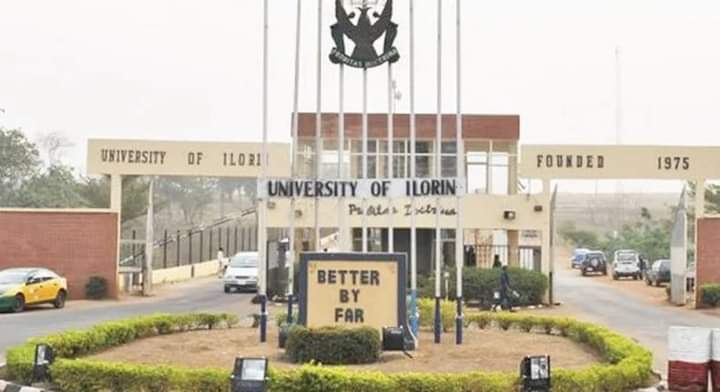The horrible incident of a student assaulting his lecturer on campus last week was disheartening. It was an unimaginable incident that has several implications. It implies a high level of moral decadence in today’s youths. It is also a consequence of the failure of our learning institutions to inculcate good character in the students. Presumably, it is also symptomatic of the inherent culture of lack of respect for teachers which western education seems to nurture and sustain through the freedom that students are given. Undoubtedly, it also reflects the demeaning status of teachers in the nation by government and the society. This is quite unfortunate!
Axiomatically, knowledge commands respect. But being an intangible property, it is practically impossible to accord it any respect directly. This can only be done by proxy; it is the teachers who possess the knowledge that must be respected by the students who are desirous of attaining it. Respect for teachers should be sacrosanct regardless of their religions, cultures, and ethnicities.
In Islamic tradition, teachers are highly regarded. In the Glorious Qur’an, Allah speaks of how He elevates those endowed with faith and knowledge (Q58:11). According to a prophetic tradition, scholars (teachers) are considered the rightful heirs of the prophets in as much as they undertake the difficult task of education through which moral values are instilled in the people. The fourth Caliph Ali was reported to have remarked that: ” I am like a slave to my teacher. Depending on his wish, he could manumit me or sell me out” An Egyptian poet Ahmad Shawq penned a poem on the status of the teacher and the respect he should be accorded. A popular line in that beautiful poem reads thus:
“Stand up in respect for the teacher;
for he is virtually a prophet”
The above philosophy is what defines the student-teacher relationship in traditional Arabic institutions in Africa. A typical student in the traditional Arabic institutions (Ile Kewu) would continue to respect his teacher decades after graduation. Several years after graduation, any time he sees his former Arabic teachers outside he cannot but feel as if he is yet to pass out of school, though they would prefer that he should not treat them that way. This is the natural state of mind of many graduates of the Arabic school (Ile Kewu). Yet, it should be added that there are exceptional instances where some Arabic teachers abuse the respect they receive from their students. But these are exceptions and not the norm.
Conversely, it seems to be a different story in institutions which are copies of western education pattern. Some graduates of these institutions care less about their former teachers. It is normal for a student at our higher institutions to ignore his teacher who is burdened with books, laptops, files and other such materials. This is impossible with a student who has passed through the traditional Arabic institutions. Out of ten students, there is every possibility that about eight of them would rush to the teacher to help him carry his bags in a manner that may even be considered embarassing by a teacher in our western-style institutions!
The ugly case of the physical assault of a lecturer may recur if efforts are not made to restore the missing character to the psyche of students in our higher institutions. The narrative that students should be given freedom needs to change. Yes, students deserve to enjoy freedom, but that should not be at the expense of their future which they might destroy with this unbridled freedom. The school authorities would be guilty of incompetence if the students whose parents had entrusted them to these schools are given free rein to do as they wish. The school authorities are expected to assume parental roles. Like the responsible parents, the school authorities should enforce certain disciplinary measures regarding the lifestyle of students. This is by ensuring that the dress code is implemented religiously. Although it may be difficult for the students to comply at the initial stage, they would soon adapt if the relevant authorities do not relent.
In addition, the school authorities should cease making compromises that may, in the end, facilitate the self-destruction of the students. It is expected that a student who has already been spoilt at home should be rehabilitated in the school with relentless efforts of the school authorities. But it is unfortunate that such spoilt students find the school environment a conducive place to continue with their naughty life style.
It is high time the school assumed its parental role by injecting moral values into the students. Naturally, this would attract noises about human rights abuse. But like a physician who is giving the patient the injection, the school authorities need not be deterred nor discouraged. This is necessary so the school can justify the claim of finding its graduates worthy in Character and Learning during each convocation ceremony.
Immoral activities perpetrated by students on campus should be stopped. They should be stopped from turning lecture areas into musical concerts in the guise of advertisement. This usually happens shortly before the final exams. This is but a display of indiscipline and lack of sense of direction and reflection on the future. Also, the trend of cruising with exotic cars on the campus in the evenings with should be addressed by the security unit. Added to this is erotic hugging. This immoral habit has now become a norm amongst students such that it is erroneously seen as a sign of maturity or civilisation with many innocent students joining in the act so as not to be discriminated against.
Finally, it is high time the school authorities dignified the position of Level Advisers. They should portray them before the students as their “Academic Parents” who should be respected and obeyed. This way, LAs would feel safe and respected and discharge their duties adequately.
*AbdulHameed Badmas Yusuf, PhD. teaches at the Department of Religions (Islamic Studies Unit) Faculty of Arts, University of Ilorin.




Undoubtedly, the student has gone to far in his response to whatever stress he is being faced by his LA or the lecturer. Nonetheless, it Should not be waived off that if truly our lecturers would want an iota of respect to be accorded to them, then they surely have to act like one who deserves to be respected.